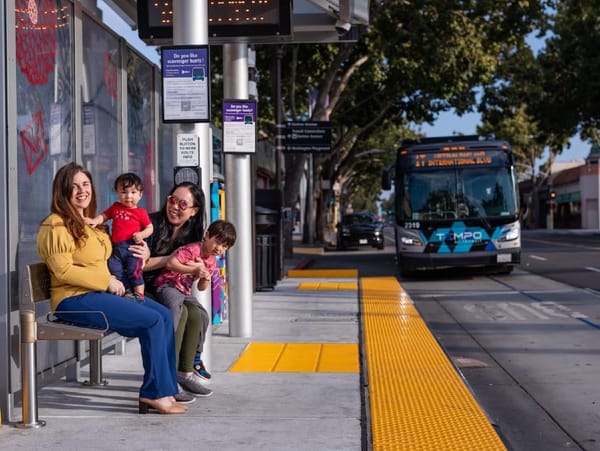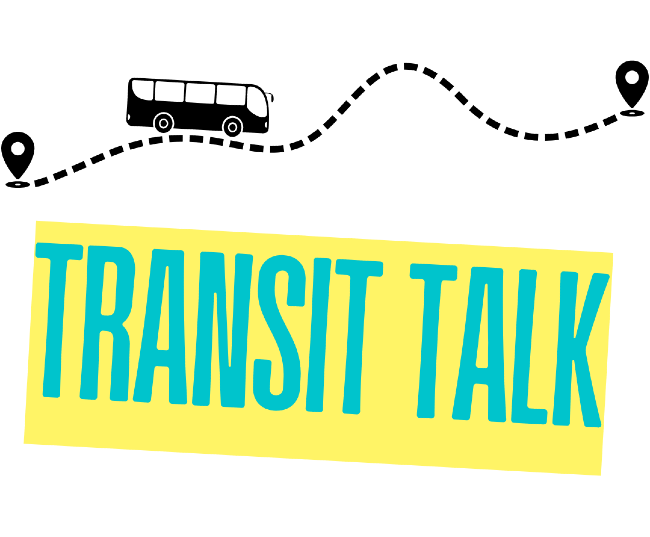2019 Fare Increase Proposal should be Reexamined

Today the AC Transit Board will decide whether to proceed with a fare increase. Setting fares is one of the most important decisions we make as a Board. The Board should make an informed decision, and while the increase was first approved in 2019, the matter has not been revisited with the time and attention it deserves.
I stand by and reaffirm my vote last year to direct staff to initiate a process for revising/re-evaluating fare pricing. We simply do not have enough information and accurate data about the potential impacts to riders and AC Transit to go ahead with this decision today. Increasing fares to $3.00 — among the highest in the country — would impose an unjust burden on low-income riders who have no other transportation option. AC Transit riders’ median yearly household income is under $36,500, and 42% lack access to a vehicle. It’s unjust to ask these riders to pay more for bus service when many already struggle to put food on the table and maintain stable housing.
The Board has not been provided with information to understand the social equity impacts and to consider potential alternatives to avoid or mitigate the regressive impacts raising fares will have on people who ride the bus. I am committed to applying an equity lens to my decision-making on fare pricing. Consequently, I do not support implementing the 20% fare increase.
For an example of how applying an equity lens can deliver new revenue equitably we need only to look across the bay at our peer agency SFMTA. Through a process similar to what I am recommending, SFMTA estimated it could generate $5.2 million annually by eliminating the Clipper discount implemented 10 years ago. The discount was put into place to get riders to switch to Clipper, which most riders have already done. After analyzing data and considering rider feedback and new regionally funded financial incentives that will benefit Clipper riders, SFMTA decision makers voted to keep cash fares at the same level and to instead phase out the Clipper discount.
Why is phasing out the Clipper discount a more equitable method to raise revenues than increasing cash fares? Cash fares are far more likely to be paid by low-income riders, who are less likely to have access to banks and credit cards that support Clipper card usage. AC Transit put the same Clipper discount in place 10 years ago, however we have not studied how much revenue we could generate by eliminating the Clipper discount, nor have we analyzed the social equity impacts of this and other alternatives. This is just one example of an analysis that should take place to support informed decision-making by the Board on fare levels.
Rather than bringing in more revenue to increase service, a fare hike of the magnitude recommended risks triggering a vicious cycle where we cannot increase service until we have more ridership and we are not able to increase ridership as customers cannot afford our product, leading inexorably to a worsening of the situation, with even less service, and less ridership, making the original problem impossible to solve.
In 2019, after just two public hearings held on the same day in one city, the Board approved raising fares by $0.50 over a 4 year period from 2019 to 2023. When the reality of the COVID-19 pandemic set in, AC Transit responded to the crisis our communities faced by doubling down on our long-standing commitment to ensuring equity in our public transportation network and taking action to defer planned fare increases. Other agencies in our position simply cancelled their pre-pandemic planned fare increases and started the issue fresh. However, AC Transit never officially cancelled its pre-pandemic fare increases and instead, the Board keeps revisiting its 2019 decision annually with little fanfare, no public outreach, and no public hearings. We need to start the process over from the beginning and do it right. We simply do not have enough information and accurate data about the potential impacts to riders and AC Transit to go ahead with this decision today.
For example: there is the question of is it necessary to raise fares to raise revenue? In 2023, the Board decided to not raise fares, and riders generated an additional $2.7 million increase in additional revenue above what staff had projected. Growing ridership is a proven strategy to increase revenue – and we should study the matter seriously.
This is why in March 2024, after receiving public input, discussion and debate, an overwhelming majority of the Board found common ground and voted to advance an informed, deliberate approach to fare pricing. In a 6-1 vote, the Board rejected the proposal to implement the 2019 fare increase. We instead directed staff to return to the Board within 3 to 6 months with a timeline for revising/re-evaluating fare pricing. The Board’s direction initiated a larger refresh of the conversation around fare pricing that would have provided sufficient time for information sharing and productive discussions between the Board, staff, and the community to develop a plan to sustain transit service.
However, that did not happen. Instead of returning to the Board within 3 to 6 months to revise/re-evaluate fare pricing, it has been a full year, and we are now asked again today to do what we roundly rejected last year. The staff recommendation significantly changes the Board’s 2019 action to raise fares biennially (every other year) by $0.50 over a 4-year period from 2019 to 2023. Staff now seek to raise fares by the same amount within a 3.5-month period instead of the smaller, incremental increases over 4 years approved by the Board in 2019.
The process the Board directed last year has not occurred, so riders and the broader community do not understand why we are looking at a decision today to approve a 20% increase, and there are still some of the same errors in the report around the fare increase.
The time is always right to do what is right. So -- I urge my fellow Board Members to vote, as we did last year, to reject this unvetted and outdated proposal and instead re-affirm our direction to staff to start the process from the beginning, complete with community outreach and engagement.
On the fifth anniversary of the COVID-19 pandemic, the Board would be foolish to rubber stamp the plan our predecessors developed back in 2019 before everything changed.[1] I don’t use the word rubber stamp lightly. The Board has no discretion to make changes to the 2019 plan as changes would trigger a requirement for public outreach and hearings and a new equity analysis.
Fare increases could be politically costly too, especially when combined with service reductions coming in August. We are going to need partners at the ballot box in the not-to-distant-future to help us pass revenue measures to help pay for transit operating expenses and to improve service.
By providing oversight and addressing the glaring accountability problem, the Board can chart a path forward to address the dire financial situation AC Transit is facing next year and into the future. Based on the most recent sales tax projections, our reserves will not be sufficient to sustain us for the next two years. Doing nothing is not an option. Yet, poor follow through on staff’s part should not constitute an emergency action on the Board’s part to rubber stamp a 2019 plan. To support a decision later this year as part of the mid-year budget process, now is the time to begin directing staff to prepare analyses and to conduct community engagement so the board has sufficient information and input to make a timely decision later this year.
To be clear – sometimes a small fare increase based on an inflation index using historical data and staff projections is a sound financial approach for transit agencies. But that must happen as part of a comprehensive approach that also includes identifying cost savings/budget cuts. I support developing a proposed fare increase schedule through a credible, transparent process that allows the Board to hear from the public and to obtain answers from staff to important questions so we can make informed decisions. We face many challenges, but we need to chart a path forward to make sure our plans are successful. Developing this plan requires us to acknowledge our new reality and develop and debate multiple options for consideration by the Board to address the dire financial situation we face next year and into the future.
Below is an exhibit of specific questions and concerns I am seeking to be informed on as we move forward to revise and re-evaluate fare pricing.
I hope the Board will engage together productively at today’s Board meeting and strive to reach consensus on a motion that provides clear direction for staff reaffirming the Board’s 2024 direction to initiate a process for revising and re-evaluating fare pricing. I look forward to working with the Board and Staff to implement a rider and customer-centric, community-engaged, data-driven process to evaluate this pivotal decision.
Sincerely,
Sarah Syed
Director Ward 3
AC Transit
Exhibit A: Questions to support informed decisions on fare pricing
- What is our goal as an agency for how people are paying fares? Do certain fare methods generate more revenue? How do our equity goals inform our pricing approach?
- In 2023, the Board decided to not raise fares, and the outcome was $2.7 million in additional revenue from ridership than staff had projected. What can be done with fare policy to raise revenue with more ridership?
- What is the mix of how people are paying fares between Clipper, full cash, short cash, and other methods?
- What is the current Clipper adoption rate? Is the adoption rate relatively stable and if so, how long has this been the case?
- SFMTA is phasing out the Clipper discount to achieve their equity goals. What goals is AC Transit’s Clipper discount achieving? What goals is the Clipper discount impeding?
- How are we planning for Clipper 2, what are our goals?
- Retail sales are a barrier to people changing over to Clipper. What is the status of efforts to reduce barriers to Clipper usage for the unbanked?
- Fare capping will also have an impact on future revenues from fares. Shouldn't we be budgeting with that number?
- Please share the equity analysis that supports the staff recommendation including key findings.
- Fare value includes not just the cost but what you are getting in exchange for that cost, e.g. an increase in the quality of what you are paying for, or free transfers. Have staff contemplated offering something else to riders to make the value on balance, so we aren't just charging people more for less? Have staff considered developing fare value proposition options for the Board to consider?
- How have past recessions, large and small, impacted AC Transit ridership? How have past recessions, large and small, impacted other sources of District revenue (including parcel and sales taxes). I am looking to understand staff’s thinking and potential approaches should a recession force the Board to make deeper service cuts at the same time we are contemplating raising fares by 20%.
- Drivers have shared that when fares increase, altercations between drivers and riders related to fare payment ramp up, making their jobs even more stressful. What strategies could support drivers during fare increase implementation?
- Zero elasticity is an extreme assumption. Put simply, fewer people will ride the bus if they have to pay a 20% higher fare — a reality we simply cannot ignore. What elasticity do our peer agencies assume in their analyses of fare increases?
[1] Three of the current 7 Board members were in office in 2019. The majority of the current Board had no voice and no vote in the 2019 process.



